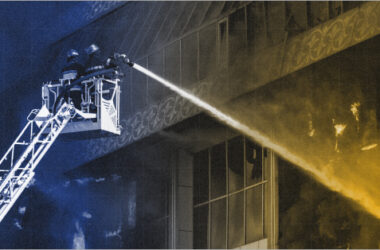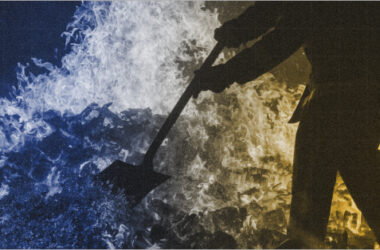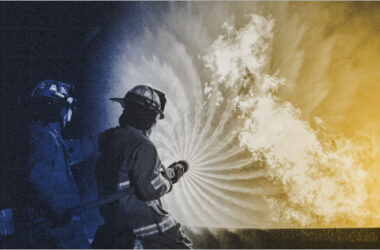Fire Insurance is an indispensable contract, intended to safeguard policyholders and business owners against the devastating aftermath of accidental fires and other unforeseen perils.
The article digs deeper into the intricacies of Fire Insurance Policies, specifically the widely recognized “Standard Fire and Allied Perils Policy” (SFSP), which serves as a robust shield against a range of potential disasters.
Nature of Fire Insurance
Fire Insurance, as mentioned in SFSP, encapsulates certain important guidelines and considerations including:
1. Proper Description of the Property: Ensure that the property being insured is accurately and thoroughly described in the policy. Any discrepancies or inaccuracies could lead to complications during a claim.
2. Exclusions: Pay close attention to the exclusions mentioned in the policy. These are the events or circumstances that the insurance company will not cover.
3. Perils Covered: Fire Insurance typically covers damages resulting from fires, but it’s important to know if it also includes other events like lightning, explosions, or riots. Be clear on what is included in your policy.
4. Add-On Covers: Depending on your needs, you might want to add coverage for natural disasters like earthquakes or floods, which are often not included in standard Fire Insurance.
5. Related Clauses: Familiarize yourself with any related clauses in the policy, such as the Goods Held in Trust Clause or the Reinstatement Value Clause.
6. Adequacy of Sum Insured: Make sure the coverage amount reflects the actual value of your property and assets.
7. Policy Period: Be aware of the policy period and any renewal requirements. Ensure that you renew your policy on time to maintain continuous coverage.
8. Deductibles: Higher deductibles can lower your premiums, but you should be prepared to cover these costs if necessary.
9. Claim Process: what to do in case of a fire-related incident will help expedite the claims process and ensure you receive the benefits you are entitled to.
10. Premiums: Compare quotes from different insurers to find the best balance between coverage and affordability.
11. Insurance Company Reputation: Research the reputation and financial stability of the insurance company.
12. Review Periodically: Regularly review your Fire Insurance Policy to ensure that it continues to meet your needs.
Remember that it’s essential to read the policy documents thoroughly. Therefore, if necessary, seek advice from BimaKavach, a direct insurance professional, to fully understand the terms and conditions of your Fire Insurance Policy.
Scope of Fire Insurance
Fire Insurance covers the following areas of concern, as mentioned in the Standard Fire and Allied Perils Policy (SFSP). The SFSP extends its protective embrace to various calamities beyond the scope of a typical fire policy.
Here are the key perils covered under this policy:
Fire: The policy’s core coverage revolves around protecting you from the devastating impact of fires, whether they arise from accidental sparks or unforeseen sources.
Lightning: Lightning strikes can wreak havoc on structures, and the SFSP ensures you’re safeguarded against such electrifying events.
Explosion / Implosion: Whether it’s a sudden detonation or an inward collapse, this policy has your back when things go boom.
Aircraft Damage: In an era of frequent air travel, the risk of aircraft-related incidents is ever-present. SFSP shields you from the financial consequences of such mishaps.
Riot, Strike and Malicious Damage (RSMD): When civil unrest or malicious intent leads to property damage, your SFSP policy will help you pick up the pieces.
Impact Damage: Accidents happen, and when they involve a sudden impact damaging your property, the SFSP policy is there to ease your burden.
Overflowing/Bursting Water Bodies: Water damage is a common nightmare for property owners. SFSP steps in when your water systems go awry.
Subsidence and Landslide including Rockslide: The gradual shifting of the earth or the sudden descent of rocks can spell disaster. SFSP offers stability in these uncertain situations.
Automatic Sprinkler Installations Leakage: While sprinklers are meant to protect, they can sometimes malfunction. SFSP ensures that you’re not left high and dry.
Missile Testing Operations: In regions where missile tests are conducted, there’s always a slight element of risk. SFSP acknowledges this and provides coverage accordingly.
Bush Fire: Wildfires can be particularly destructive, and SFSP recognizes this threat, making it part of its comprehensive coverage.
Other Natural Disasters: Nature’s fury can be relentless, but with SFSP (comprising storms, hurricanes, tornados, and floods among others) one can weather the storm, quite literally.
Add-on Covers in Fire Insurance
Further, SFSP allows for the inclusion of “add-on covers” through endorsements and payment of additional premiums. This flexibility ensures that your policy can be tailored to meet your specific needs, providing a truly customized safety net for your property and assets. These covers may include:
Declaration Policy: Useful when stock values fluctuate frequently. The policy requires regular declarations of stock value, usually monthly. The premium is calculated based on the average declared value, and any excess premium is refunded at the end of the policy year.
Floater Policy: This policy is for stocks in various warehouses owned by the policyholder. It’s suitable for warehouses with frequent stock movements that are hard to track individually. The policy covers all warehouses under one insured sum.
Floater Declaration Policy: A combination of the above two policies, designed for stocks in various locations with fluctuating values.
General Exclusions
It is also important to know what’s not covered.
Here is the list:
· A deductible (first amount) applies to certain claims for things like acts of nature (e.g., lightning) and other perils.
· Damage caused by war, nuclear perils, pollution, and contamination.
· Damage to electrical and electronic equipment due to electricity-related issues
· Indirect losses like loss of earnings, market disruption, or delay.
· Terrorism damage is excluded unless specifically covered.
· Spoilage due to process interruption isn’t covered.
· Theft is generally not covered except under Riot, Strike, Malicious, and Terrorism Damage.
· Earthquake coverage is possible with an extra premium.
· Property must remain in the insured location, except for temporary removal for repairs lasting up to 60 days.
In the nutshell
The SFSP covers various perils, including lightning, explosions, aircraft damage, riots, storms, impact damage, and more. It also allows for customization through add-on covers.
However, make sure you choose the right insurance coverage amount based on methods like normal indemnity, reinstatement value policy, and escalation clause, depending on individual needs and budget.
Lastly, remember important points when buying Fire Insurance, such as understanding covered perils, exclusions, add-on covers, proper property description, related clauses, sum insured adequacy, policy period, deductibles, claim process, premiums, insurer reputation, and the importance of periodic policy reviews.
Disclaimer: The above information is indicative in nature. For more details on the risk factors, terms, and conditions, please refer to the Sales Brochure and Policy Wording carefully before concluding a sale.
References:
https://www.gicouncil.in/insurance-education/types-of-insurance/fire/
Read more about Single Transit Policy
Read more about Marine Open Policy
Read more about Sales Turnover Policy








